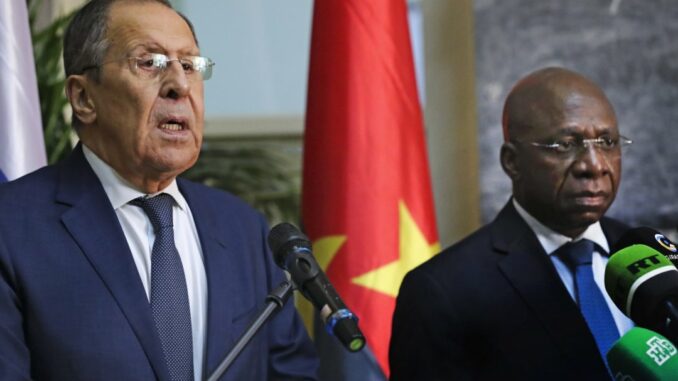
The Ministry of Foreign Affairs of Angola (MREX) says it rejects the news broadcasted last Friday, 24, about sending national mercenaries to fight in Ukraine alongside Russia.
In a “Note of Protest” sent to the press, the department led by Tete Antonio “vehemently rejects these fallacious information that constitute a deliberate desire to tarnish and discredit the good image of the Angolan authorities at the highest level.
This position comes after the Ministry became aware of the news released by the television station CNN-Portugal, according to which the “Government of the Republic of Angola proceeded to send mercenaries to fight in the war opposing Russia and Ukraine, an action supposedly agreed during the visit to Luanda of His Excellency Sergei Lavrov, Minister of Foreign Affairs of the Russian Federation.
The Angolan diplomacy still says it regrets the fact that CNN-Portugal has not exercised the contradictory, “when it had every possibility to do so” and manifested “its displeasure with the Portuguese authorities before the damage caused by this irresponsible and repeated act of CNN-Portugal”.
For the Angolan government, “this action of the television station CNN-Portugal in no way favors the good relationship between the Republic of Angola and the Portuguese Republic.
The MREX concludes that “Angola has already been a victim of mercenarism in the early days of its independence, having always condemned such actions, taking energetic and exemplary measures to discourage practices of this kind.
The news that mercenaries had been hired in Angola was cited by several media outlets that referred to information released by Ukraine’s National Resistance Center (NRC) portal on Thursday, 23.
The site, which presents itself as being “created by the Special Operations Forces of the Armed Forces of Ukraine to support and coordinate those who fight for the liberation of our land from Russian invaders,” wrote that “to cover the great losses, the Russians plan to attract even more mercenaries, whose loss does not cause social tension in Russian society.”
